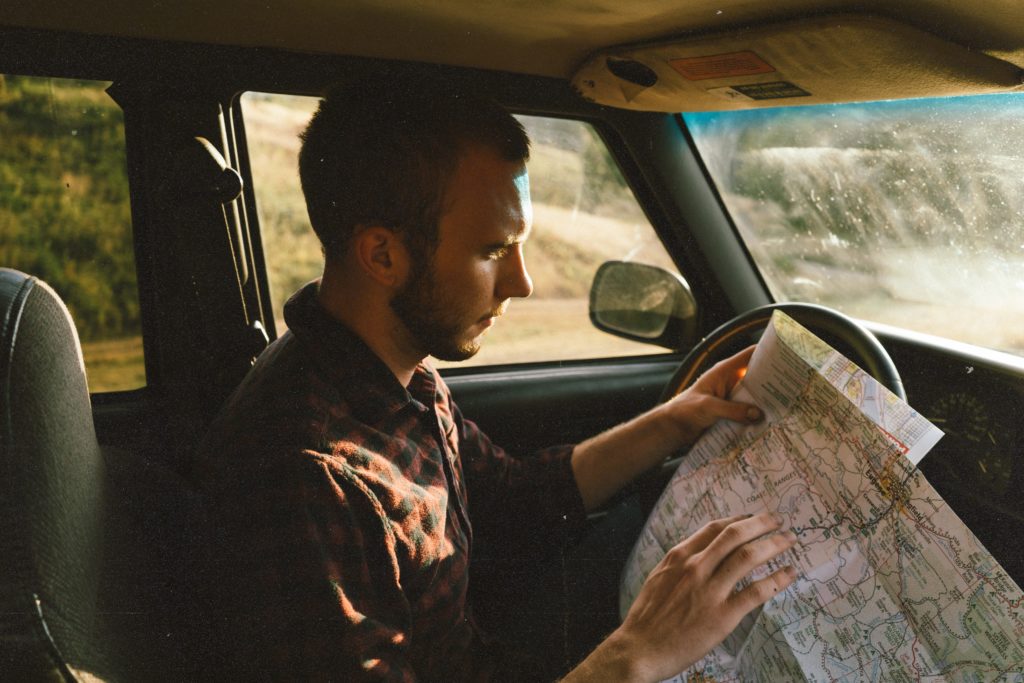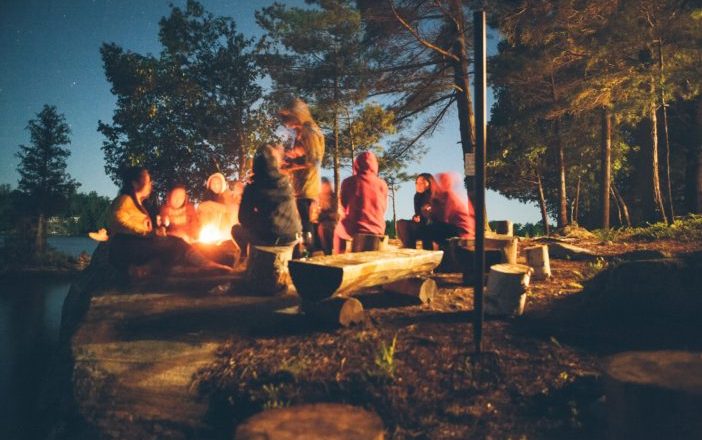Any avid outdoor adventurer knows that proper preparation is the key to making the most of your time outdoors. Even when things don’t go to plan, being equipped with the right equipment and knowledge, will allow you to deal with the unexpected in more productive ways.
When it comes to outdoor skills, you will learn much of them through experience, but there are certain skills that you can actively acquire either by engaging with various online resources or enrolling in courses. Another way to prepare yourself for the outdoors is by speaking to other more experienced outdoor adventurers about what to expect.

To help you prepare for your next adventure, we’ve come up with a list of the essential skills that are useful for every outdoor adventurer, regardless if you are taking an afternoon bike ride or an overnight camping trip:
Proper Packing
A key part of preparation is packing all the necessary items you could likely need while also limiting the number of additional items which may not get used. There is no greater regret amongst hikers than having had to carry unnecessary weight on a long, arduous hike. Start by making a list, laying everything out, and dividing the items you want to take by weight (light, medium, and heavy). Anything light and items which need to stay dry such as a sleeping bag and foodstuff should be packed at the bottom.
The heaviest items should go in the middle and remain close to your spine. The essential items which you need to access regularly such as your water bottle, map, compass, sunglasses, hat, and raincoat should be placed at the very top or in the side pockets. Dividing toiletries, tech items, and first aid items into color-coded bags is another good practice.
Don’t forget you’ll need to wear the pack for long periods of time so keeping it as light as possible and packing the essentials will make your journey much more comfortable. Furthermore, getting a properly fitted backpack can make all the difference when it comes to alleviating pressure on your body.
Navigation

If you plan on spending time outdoors, it is helpful to learn how to use a topographical map and a compass. Using a physical paper map may seem like a somewhat archaic practice in our modern age, but the ability to do so may be the thing that saves you one day. While many people these days will rely on their phone or a GPS, this isn’t the wisest option when you consider that electronic devices can easily break or run out of battery life.
Being out in the wilderness means that you are unlikely to have significant mobile signals, so being able to orient yourself and navigate yourself to safety is an essential skill that everyone should have.
Basic First Aid is a must for any outdoor adventurer
For avid adventurers that plan to spend a lot of time in the wilderness, a Wilderness First Responder certification is a good idea, along with a basic first aid course. This type, of course, will help you avoid danger and prevent an emergency situation from getting worse. In addition to packing the right gear, you’ll learn how your body reacts to heat and cold and the value of learning how to layer your clothing in ways that makes it easy to react to changing weather conditions. While hypothermia and dehydration aren’t major issues in everyday life, they can be fatal in the wild.
A first aid course will help you assess an unconscious or injured hiker which can be the difference between life and death. Knowing the signs is critical. With hypothermia, you’ll notice shivering, stuttering speech, and deteriorating muscle coordination. In the case of dehydration, you’ll be expected to look out for fatigue, headaches, dizziness, and confusion. Enrolling in a formal training course will provide you with the knowledge and training to act quickly to make a person more comfortable or even save their life.
Handling Unexpected Wildlife
Depending on where you happen to be embarking upon your adventure, there is often the chance of encountering wildlife. It is part of the beauty of being outdoors, but wild animals can also be hazardous, especially if you don’t know how best to react. You can read about the type of animals found in the area or take a formal course like Bear Awareness Training to learn how best to handle different bear species.
Building a Fire
Knowing how to build a fire is important when it comes to keeping warm. There are several different techniques that can be used, such as the log cabin, teepee, and pyramid methods, so you’ll need to figure out which works best in different environments. It is also good to inform yourself about helpful tools for building fires, such as waterproof matches, fire strikers, and dryer lint.
Building a Shelter
Even if you plan an adventure according to the seasons, the elements can turn on you without warning. Being able to find and make a shelter can be the difference between life and death in certain situations. When it comes to surviving in the great outdoors, there are two types of shelter you need to know about. Firstly, there are those that are dry and then there are shelters that keep you warm. In wet conditions, you can find a beam and prop it between a couple of supports to create a triangular opening and by leaning sticks against the support beam to form an enclosure
Adding leaves or branches to the top of the shelter will provide more protection from the rain. While this type of shelter will keep you dry, you’ll need to build it strategically in a place that isn’t too windy in order to limit the chances of collapse. If you are dealing with snow or cold conditions, a cave-like structure will be best. However, ensure ventilation to limit the danger of asphyxiation.
Filtering Water
Most of us know that staying well hydrated is key to surviving outdoors. In fact, it is argued that you need to drink the equivalent half of your body weight in ounces each day to stay properly hydrated. However, on multi-day adventures, it can be cumbersome to carry this amount of water on your person which is why the ability to filter water from natural sources becomes important.
Boiling water kills bad bacteria, but you might not always have access to fuel, so relying on this option is not always viable. Another alternative is to use a good quality water filter to physically strain water to remove waterborne bacteria. However, the best option by far is to use an iodine-based water purifier as it removes viruses. In addition, to the use of iodine, you might use a prefilter to remove any sediment. A final option would be an ultraviolet purifier which uses UV light to sterilize the water. However, these are quite cumbersome and expensive.

Keeping Yourself Energized
Even if you are a pro in the kitchen at home, keeping the body fueled while on an outdoor adventure is another story altogether. Ideally, you should carry food that fuels the body well but is easy to prepare. Spend time educating yourself on what the best snacks and meals are. You’ll need to be mindful of the terrain, mileage, elevation, and local wildlife, as well as the type of equipment you’ll have available when considering your food choices.
Mental Strength

We often think of outdoor adventures as a physical pursuit, but forget the mental aspects that go along with it. If you are taking on a physically challenging task like hiking, you’ll need mental fortitude alongside your physical strength to get you through this activity. Mental strength also involves the ability to stay positive and motivated when things aren’t quite going in your favor. Factors such as injuries, bad weather, and other unforeseen circumstances can also test your willpower, and having a positive mental attitude can be useful for tackling these challenges head-on.
An Understanding of Your Personal Limitations
Understandably, being immersed in nature is inspiring, with fewer rules, vast landscapes, and fewer people to deal with, which makes it easier to act on impulse. When you compare this to everyday life which is far more regulated, it’s easy to see why so many of us enjoy an outdoor adventure. However, it is imperative for every outdoor adventurer to understand their limitations, as well as their responsibility to the natural environment. Much of this humility is built through experience, so take your time and understand that you are often far away from civilization, and help isn’t as easily accessible.
Part of the fun of an outdoor adventure is the unexpected events that occur along the way. These incidents, if handled well, become stories that you’ll be retelling for years to come. However, this type of fun can only be had if you are sensible enough to learn the basic survival skills needed to handle the challenges that Mother Nature inevitably throws our way. Use this list of essential skills as a base and learn the little things that can make a huge difference when it comes to the success of your next outdoor adventure. You’ll find that once you are armed with the knowledge and skills you’ll be able to take on any outdoor challenge with more confidence.
source : Cornelia Adams



